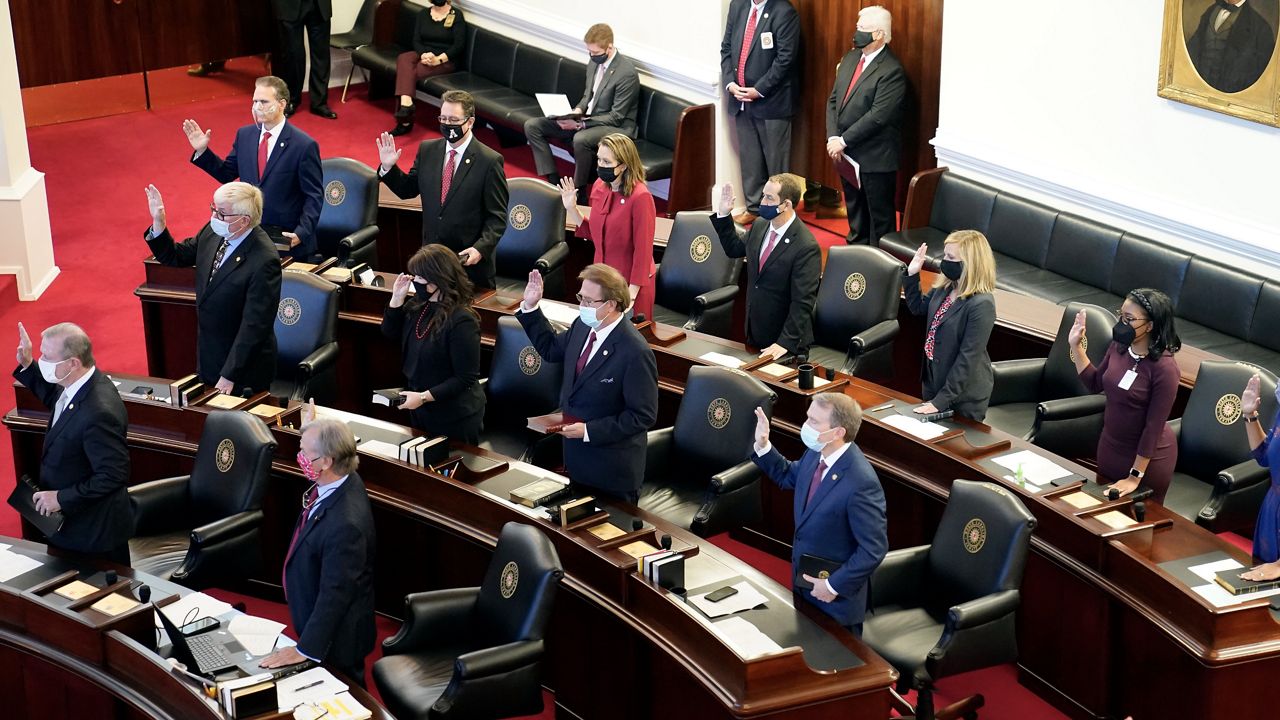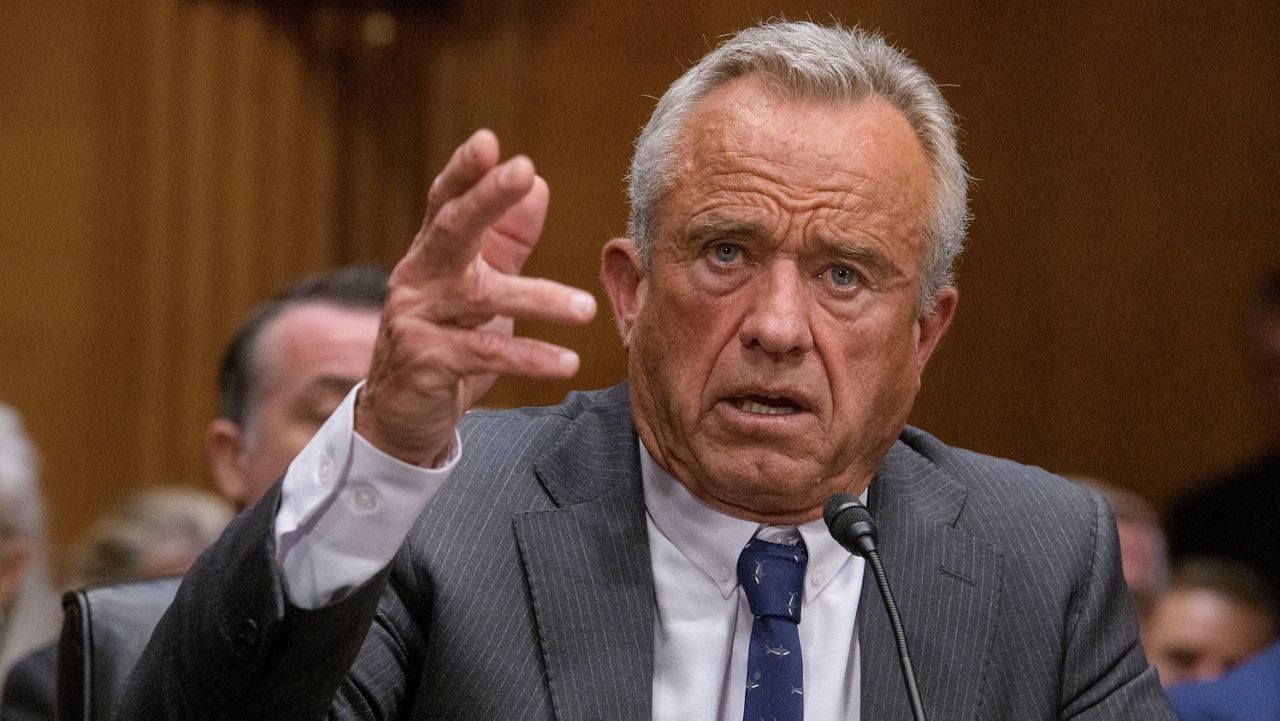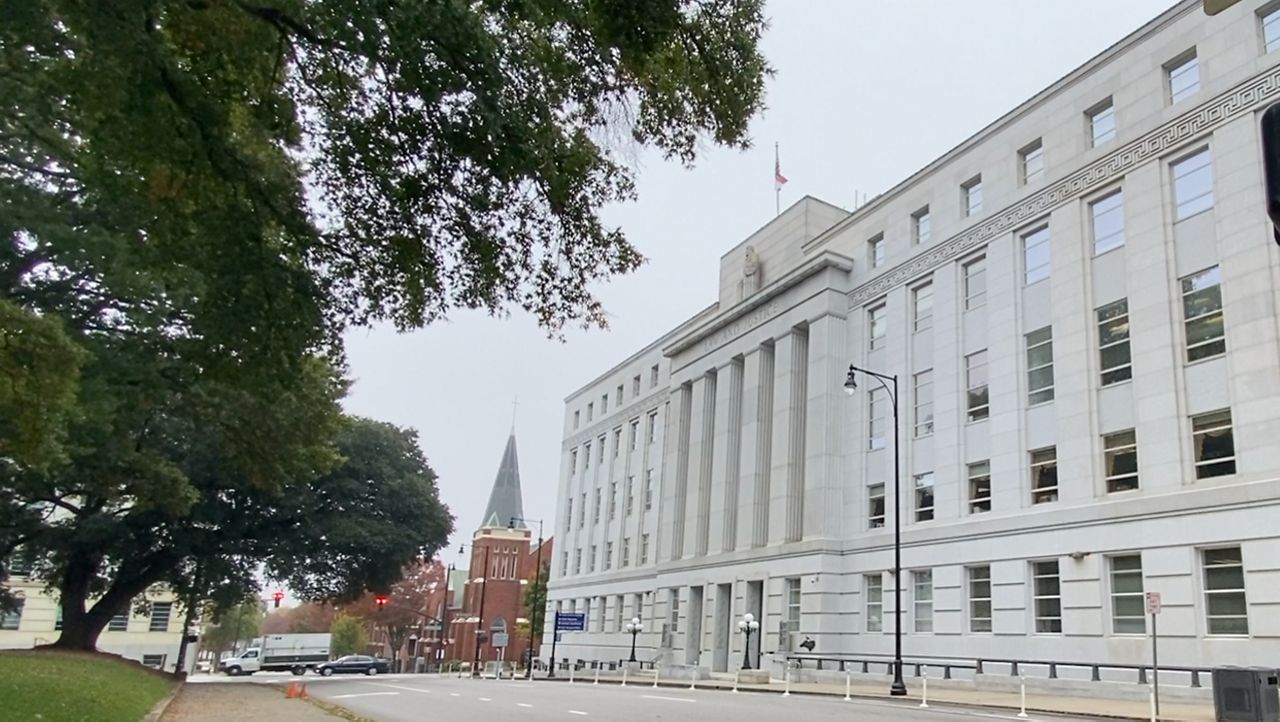The North Carolina House and Senate will convene at noon Wednesday to kick off what could be a busy and long session for 2021.
The Republicans kept their majorities in both chambers of the General Assembly in the last election but they did not flip enough seats to overcome the governor’s veto.
There are some big obvious issues the North Carolina General Assembly will need to tackle, and the most pressing is the coronavirus pandemic.
The biggest items on the agenda for the coming months will be the state budget and redistricting.
The once-a-decade process to redraw congressional districts has, in decades past, gone on for years and landed in the courts to figure out. That process won’t really begin until this summer.
Both sides of the aisle in the legislature have also indicated they want to do something on health care, but have different ideas on what that should be.
Here’s what we’re watching as the 2021 session kicks off:
More federal coronavirus money will likely come into North Carolina to help boost the economy, help with schools dealing with the pandemic, and pay for things like protective equipment and the vaccination campaign.
It’s unclear how the legislature will take up doling out this money, but it could definitely lead to debate on where the funds are best spent to help North Carolina recover from the economic downturn.
Legislators and the governor came together last year to pass coronavirus relief measures, which bodes well for addressing early issues like helping businesses struggling because of the pandemic and figuring out how to help students get back to in-person classes.
Expanding rural broadband access could also get bipartisan cooperation as the session gets going.
Many in the Republican-controlled legislature have been critical of Gov. Roy Cooper’s emergency orders restricting economic activity during the pandemic, including curfews and business closures.
It’s possible some GOP legislators, unhappy with Cooper’s orders, could look to changing the governor’s emergency powers.
Last year, a stalemate between Republican leaders in the legislature and the governor meant the state budget was never fully passed. The impasse meant many items on the agenda of both the GOP and the Democratic governor never became law.
Those marquee items last year for the Republicans controlling the legislature were on late-term abortions and requiring county sheriffs in North Carolina to help with federal immigration enforcement.
For the governor’s part, he wanted to expand Medicaid. Senate leader Phil Berger and House Speaker Tim Moore told the Associated Press recently that they do not favor a big Medicaid expansion.
“The voters chose divided government. That’s where we are. And so we will have to govern accordingly,” Moore told the AP. “There’s no use in having a budget impasse where we don’t get anything else done because of that. Because there’s so many things so many good ways we can spend the money and so many needs out there.”
The coronavirus has complicated the budget process this year. Lawmakers have not gotten a budget forecast since May because the pandemic has made everything more difficult. Lawmakers have until the end of June to pass a new 2-year budget.
The redistricting process, when the legislature will redraw the maps of North Carolina's legislative and congressional districts, will begin this summer.
Each state draws new districts every 10 years, following the census the year before. North Carolina’s population growth over the last decade means the state could get a new Congressional district. That would be a 14th Congressional District in North Carolina.
The last redistricting process was brutal and ended up in a number of drawn out court challenges to decide the fate of North Carolina’s political districts.
Some other states use nonpartisan commissions to redraw their districts, but that doesn’t seem to be in the cards for North Carolina. GOP leaders in the legislature have indicated they plan to have a partisan process again this year to draw new maps that will shape the state’s politics for a decade to come.








